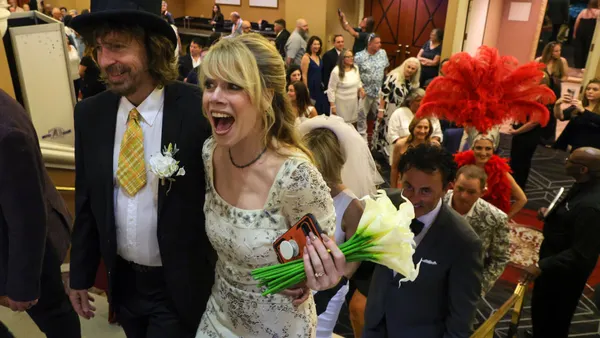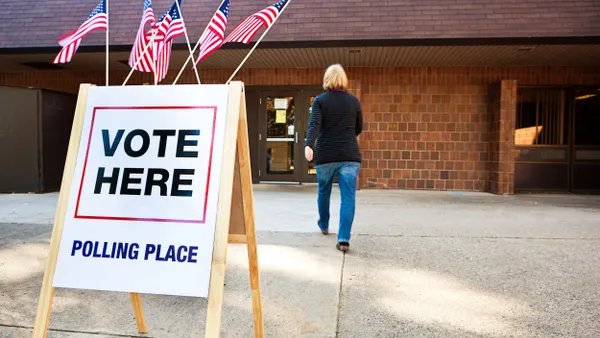Dive Brief:
- Boston awarded nine businesses its "Age and Dementia-Friendly Business" designation in the first run of a pilot program to recognize businesses that are more age-inclusive.
- In order to qualify for the designation — which comes with certificates and a decal — the businesses had to meet certain criteria, including accessible bathrooms, larger font size on menus, better lighting and wider aisles. Those measures were part of resident feedback from the city’s Age-Friendly Boston Action Plan.
- The businesses that got the initial designations were: Local 338 Bagels and Coffee, Parkway Real Estate, Cryotherapy, West on Centre, Health Express, BCYF Roche Center, Human Harmonies, Milton Chiropractic and Bay State Physical Therapy, Recreo Coffee and Roasterie, and Parkway Hearing.
Dive Insight:
The public designations are part of Mayor Marty Walsh’s plan to make Boston "the most age-friendly city in America." In 2017, the city launched a three-year action plan to ensure that it was optimized for an aging population. According to a progress report, that plan has already led to the creation of an employment guide and training program for older residents trying to stay in the workforce, a civic academy designed to keep older residents in touch with politicians and an interactive map of public restrooms. The city has also launched a "home-share" program, helping older homeowners rent out spare rooms at an affordable price.
With the nation’s population aging and older residents increasingly looking to stay in their homes in urban environments, cities are exploring how to make infrastructure and businesses more accessible to the elderly. The AARP has helped cities around the country develop comprehensive plans; Danielle Arigoni, the group’s director of livable communities, previously told Smart Cities Dive the goal is to "stitch together the connections that exist between housing and how people get around, between infrastructure investments and... whether or not there’s pedestrian infrastructure in place."
A major part of those efforts has been around mobility — smoothing sidewalks and curbs to make them safer for pedestrians, adding bus and shuttle services to supplement transit and making ride-share more available. Another challenge has been housing, especially with a lack of affordable units for seniors living on a fixed income. Boston’s plan has also targeted more social efforts, like employment and civic engagement; rewarding businesses and recognizing those that take steps to be more open to the elderly will ensure that older residents have a more vibrant community and avoid loneliness.











